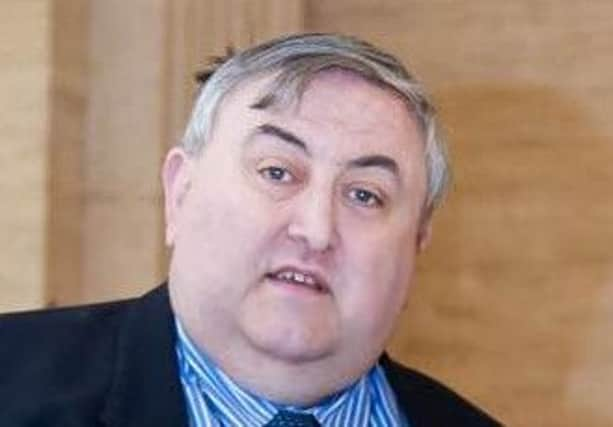Calls to cut MLAs' pay as no deal to govern in sight


Alan McQuillan, who was until recently on the three-strong panel which decided MLAs’ pay, said that regardless of any new election, the secretary of state should now simply announce a date at which politicians’ pay stops if Stormont is still not up and running.
Mr McQuillan, a former senior police officer, said that this date should be as little as two months away.
Advertisement
Hide AdAdvertisement
Hide AdEarlier this month Mr McQuillan had joined with the other two members of the now-defunct Independent Financial Review Panel (IFRP) to say that MLAs should only be paid for three months after the imposition of direct rule (read more here).
The Secretary of State has not responded.
On Monday, he told the News Letter the secretary of state “should light the fire now and should give them a very clear timetable of about two to three months”.
“My view is quite simple; no play, no pay,” he said.
“Last time this happened in 2003, we finished up paying them for five years, which was ludicrous. They were getting two-thirds [pay], and some expenses. I think that’s absolutely ludicrous.
“The message should be: ‘If you haven’t got an Executive by such-and-such a date – bang! No more money.’”
Advertisement
Hide AdAdvertisement
Hide AdHe said up to 600 jobs could be at risk under direct rule, including MLAs, Stormont staff, and constituency workers.
Also on Monday, People Before Profit MLA Gerry Carroll called for “immediate action to curtail MLAs’ pay should Stormont be mothballed”, whilst TUV MLA Jim Allister questioned why the Assembly speaker Robin Newton is still being receiving his salary, since the Assembly is not meeting.
Sinn Fein has by far the biggest income of any Northern Irish political party.
It had a total income of £1.16m in 2015 (including just over £700,000 in donations), and spent £1.22m.
Advertisement
Hide AdAdvertisement
Hide AdBy contrast, the DUP had an income of £533,682 in 2015 (including just under £150,000 in donations), and spent £511,766.
Sinn Fein also pays its MLAs less than the £49,000 to which they are entitled, and retains the rest of the cash for the party.
This suggests that it may be in a better position to weather a cut in MLAs’ wages than other parties.
Jim Allister said he is “sympathetic to the idea” of cutting salaries.
Advertisement
Hide AdAdvertisement
Hide AdWhen it comes to the notion that Sinn Fein could be in a stronger position to cope with that than unionist counterparts, he said: “That’s one of my concerns about the Assembly – that instead of matters being decided on the basis of principle and what’s in the interests of the country, they possibly are being decided by what’s in the financial interests of the MLAs and what keeps them in a job.”
Sinn Fein “maybe are less consumed with the issue of the salary and income of their MLAs, than sadly others are,” he said.
It was put to him that this would weaken the bargaining position of unionists going up against Sinn Fein.
He replied that it would be “a very poor commentary on unionist parties” if salaries “matter more to them than doing the right thing”.
Advertisement
Hide AdAdvertisement
Hide AdMLAs currently get a minimum salary of £49,000 per year – or more if they chair a committee, are a minister, or hold other senior roles.
On top of that there is an allowance which is paid based on how far away their constituency is from Belfast, of up to about £6,000 per annum.
Each MLA is also entitled to a maximum of two full-time equivalent constituency staff, who can earn a maximum of £50,000 split between them.
Each MLA can also claim £8,500 per annum in rent for constituency offices, £3,400 in rates, and £5,500 for running costs.
Advertisement
Hide AdAdvertisement
Hide AdThe salaries and allowances are stopped when the Assembly dissolves for an election, but kick in again once Assembly members sign the register after being elected.
On top of all the above, MLAs get the equivalent of 15% of their salary paid into their pension pot per year (they automatically pay in 9% of their salaries themselves).